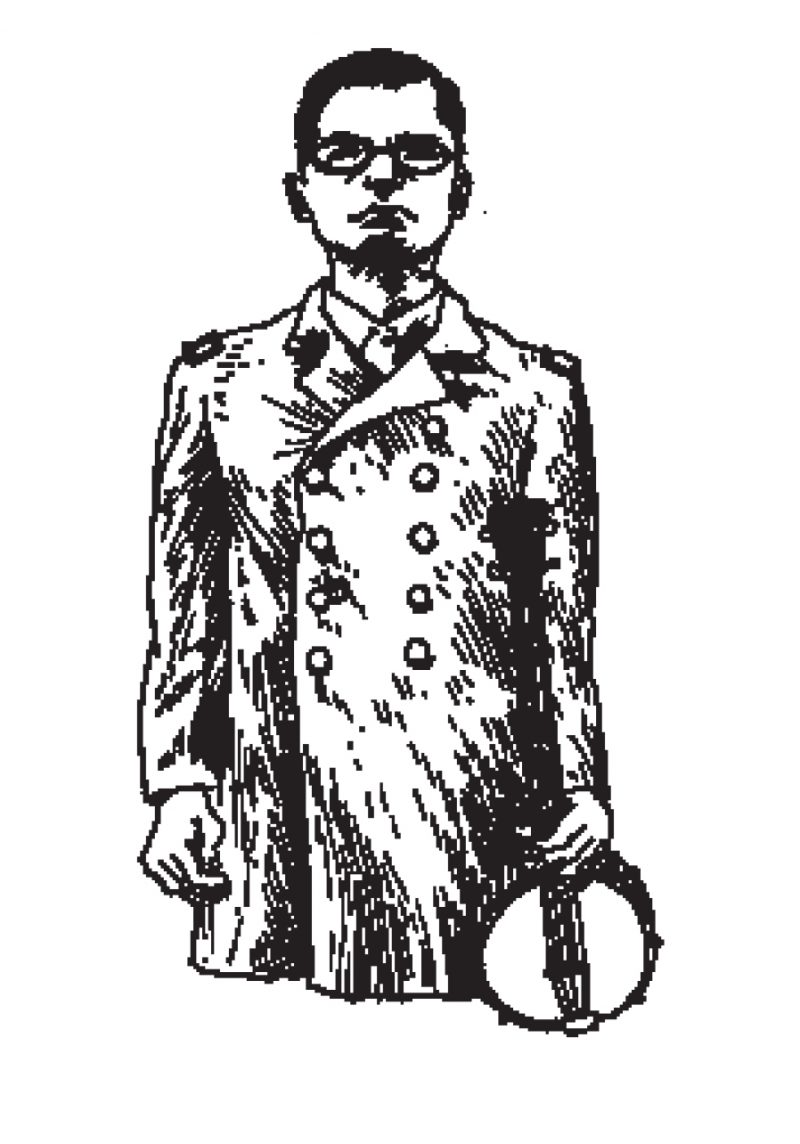Colin Meloy can find the epic in just about anything. As the lead singer and songwriter for the Portland, Oregon–based Decemberists, he writes sprawling period pieces about rogues and seafaring types. This could sound like a gimmick until you hear his songs; they’re terribly catchy, immediate, and emotionally loaded.
2003 saw the reissue of Castaways and Cutouts and the release of Her Majesty The Decemberists. Since then, Meloy has written The Replacements’ Let It Be—a 128-page nonfiction book about the seminal post-punk album of the same name (Continuum Publishing, 33 1/3 series); and the Decemberists just released The Tain EP, a blistering eighteen-minute interpretation of the eighth-century Celtic poem “Tain Bo Cuailinge.”
The interviewer cornered Meloy on the telephone, at home in Portland, just before the band left on their March 2004 “Never Send to Know with Whom the Van Rolls, It Rolls with Thee” Tour. A gracious man, Meloy patiently provided the lowdown on the misunderstood aspects of Morrissey; the role his writer sister, Maile Meloy (author of Half in Love and Liars and Saints), played in motivating the Decemberists to record the Castaways and Cutouts album; his contentious relationship with the dictionary; and his brilliant premise for the next Tony Hawk skateboarding video game.
—Jim Roll
I. “IF THE WORDS ARE REALLY HELPING OUT THE RHYTHM OF THE SONG THEN ALL THEY’RE GOING TO DO IS DRAW THE LISTENER IN EVEN MORE.”
THE BELIEVER: You are uncannily adept at spinning elaborate, emotional, and colorful tales in the context of infectious, melodic pop songs; you’re certainly one of the best I’ve ever heard. Meanwhile, your sister, Maile Meloy, is one badass fiction writer. I can’t get over how great her short-story collection, Half in Love, is! What were they feeding you two back home in Montana?
COLIN MELOY: Cream of the West, hamburgers from the Windbag Saloon, and coney dogs from Coney Island. That’s what I recall being fed, anyway. I’m not sure if my sister ate of this ambrosia.
BLVR: Do you show up in any of your sister’s stories—or does she show up in any of your songs, either literally or otherwise?
CM: The only song where she plays a cameo role is in “My Mother Was a Chinese Trapeze Artist,” though that depiction of her is far from accurate. I show up briefly in one of the short stories in Half in Love in a description of a character’s son, who has supposedly squandered a college education by moving to Portland and playing in a band. It’s pretty peripheral.
BLVR: How have you influenced each other? I certainly...
You have reached your article limit
Sign up for a digital subscription and continue reading all new issues, plus our entire archives, for just $1.50/month.
Already a subscriber? Sign in





